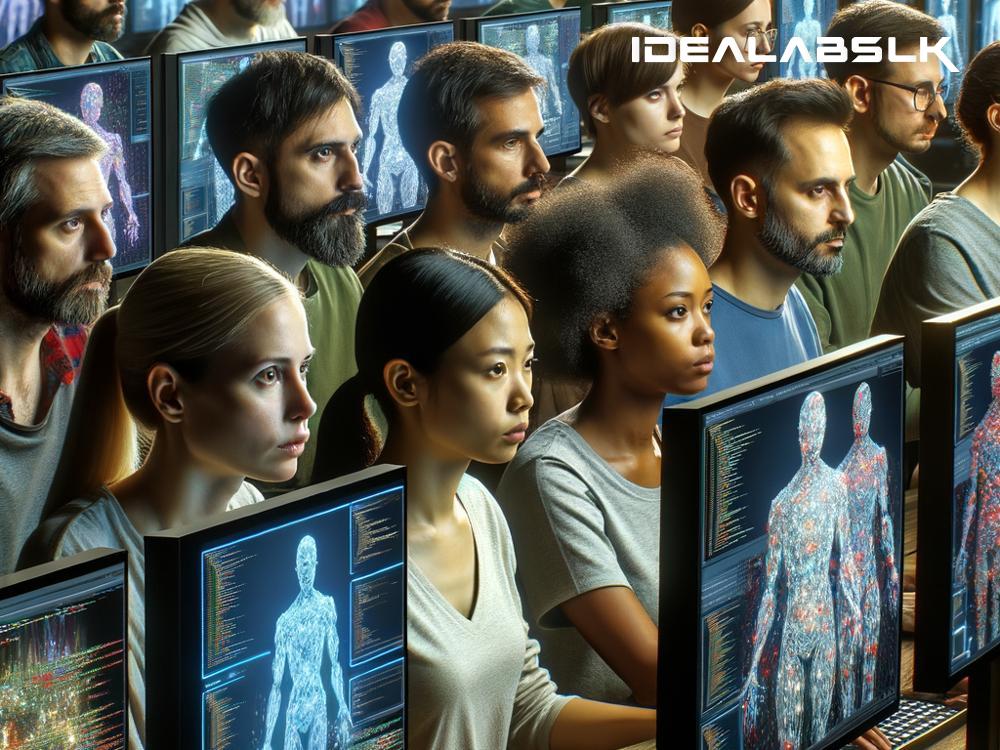AI in the Gaming Industry: Shaping the Future of Game Development in 2025
The gaming industry is undergoing a revolution, thanks to Artificial Intelligence (AI). In 2025, AI isn't just a buzzword or a set of futuristic tools waiting to be unleashed; it's actively changing the landscape of how games are developed, making them more immersive, interactive, and personalized than ever before. Let's dive into the fascinating world of AI in game development and how it's shaping the future of the gaming industry.
Creating More Realistic and Immersive Worlds
One of the most noticeable impacts of AI in game development is the creation of incredibly realistic and immersive game worlds. Gone are the days of static backgrounds and predictable NPC (non-playable character) behaviors. AI algorithms now enable the creation of vast, dynamic worlds that react to player actions in real-time.
Imagine walking through a forest in a game, where every leaf, every sound, and even the behavior of animals is influenced by your actions, thanks to AI. The environment grows denser or thins out based on the players' interactions within the game, providing a unique experience for every player.
Personalized Gaming Experiences
AI is making games more personalized, tailoring gameplay to suit the preferences and playing styles of each gamer. By analyzing player data, AI can adjust game difficulty, suggest quests, alter storylines, and even modify the game environment in real-time to create a more engaging and satisfying experience for the player.
In 2025, it's not uncommon for a game to feel like it knows you better than you know yourself. This level of personalization ensures that games are accessible to a wider range of players, from the casual gamer looking for a relaxing experience to the hardcore gamer craving a challenge.
Enhanced Game Development Processes
The impact of AI on the gaming industry isn't just in the final product that reaches consumers but also in the processes behind the scenes. Game development has become more efficient and less resource-intensive due to AI algorithms that automate repetitive tasks, such as coding basic functions or generating large volumes of content.
AI tools are being used to create complex animations with minimal human input, generate realistic textures, and even design entire levels or maps. This not only speeds up the development process but also allows creative teams to focus on more innovative aspects of game design.
Revolutionizing Gameplay with AI Opponents and Characters
AI is revolutionizing gameplay by creating smarter, more challenging AI opponents and characters. These AI-driven entities can learn from the player's strategies, adapting and evolving their behaviors to provide a constantly fresh and challenging experience.
In competitive gaming, AI opponents are no longer mere obstacles to be overcome; they're dynamic rivals that grow and strategize against the player, pushing gamers to improve their skills continually. Similarly, AI characters can develop complex relationships with the player based on in-game interactions, leading to more emotionally engaging and nuanced narratives.
Facing the Challenges and Concerns
While the integration of AI in game development promises to revolutionize the gaming experience, it also brings its set of challenges and concerns. Issues such as data privacy, ethical considerations in AI behavior, and the potential for job displacement within the industry are topics of ongoing discussion.
Moreover, there's a delicate balance to be struck in ensuring that AI enhances rather than detracts from the gaming experience. Overreliance on AI could lead to a homogenized gaming landscape, where games lose their uniqueness and appeal.
Looking Ahead
As we move further into 2025, the role of AI in game development continues to evolve and expand. It's clear that AI holds the key to unlocking unprecedented levels of realism, interactivity, and personalization in games.
However, as the industry navigates the possibilities and pitfalls of this evolving landscape, one thing remains certain: AI is not just changing the way games are developed; it's reshaping the very nature of gaming itself, promising a future where the only limit is our imagination.
In the end, the fusion of AI and game development is not just about creating more advanced games. It's about delivering experiences that are deeply personal, constantly engaging, and endlessly surprising — a goal that, in 2025, is more attainable than ever before. The journey of AI in the gaming industry is just beginning, and its full potential is yet to be realized. Let's embrace the change and look forward to a future where games are not just played but lived.

